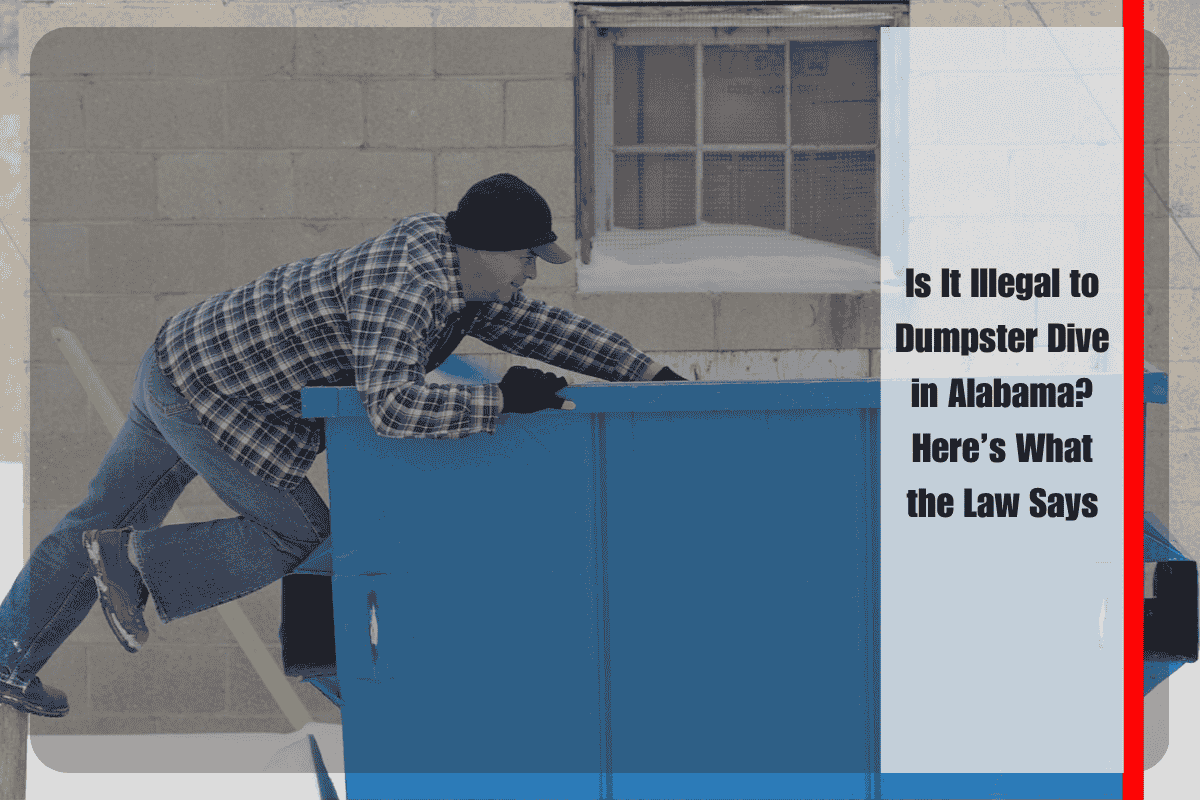Dumpster diving in Alabama is not illegal under state law as of 2025, but its legality depends on where and how you do it. Like most states, Alabama follows the precedent set by the U.S. Supreme Court in California v. Greenwood (1988), which states that once trash is set out for collection on public property, there is no reasonable expectation of privacy, and the discarded items are considered abandoned. This ruling indirectly permits dumpster diving in public places and supports the legality of the activity when the dumpster or trash is on public property and not otherwise restricted.
However, the majority of dumpsters, especially those behind businesses, apartment complexes, or stores, are located on private property. In these cases, entering the premises to access a dumpster without explicit permission can lead to a charge of trespassing or even theft if the discarded objects are considered to have value or if there are posted signs prohibiting such activities. It is very common for businesses to post “No Trespassing” or “No Dumpster Diving” signs, fence in or lock their dumpsters to deter people from entering, and in those situations, local law enforcement will be much more likely to view dumpster diving as an illegal act involving trespassing. If a dumpster is locked, surrounded by a fence, or there are clear signs stating no access, crossing those barriers for the purpose of dumpster diving is specifically prohibited.
Alabama does not have any statewide statutes that universally ban dumpster diving, but individual cities or counties might have ordinances that are more restrictive. These may specifically prohibit scavenging from trash cans on city property or rummaging through residential curbside waste. Local regulations can also differ regarding whether recyclables or specific types of waste (such as food, hazardous materials, or electronic items) may be taken. Therefore, anyone interested in dumpster diving should research local municipal codes or ask local authorities or property owners about the specifics in their area.
Even in situations where dumpster diving is allowed, there are various risks. While not usually enforced as harshly as trespass, police or security might be summoned if someone is making a mess, disturbing residents, or there is any suspicion of disorderly conduct or theft. There are safety issues as well, from potential injuries while navigating broken glass and other hazards to the risk of encountering contaminated or spoiled materials. Items such as bank statements or documents with personal information should not be taken, as possessing these can expose you to other legal liabilities, like charges related to identity theft.
To remain within the scope of the law and minimize risk, stick to dumpsters or discarded items on public property, avoid trespassing onto private property, respect posted signs, and leave the area clean. Asking for permission when in doubt is always a safer course of action. If approached by law enforcement or a property owner, it is best to comply and promptly leave the premises.
Dumpster diving is generally legal in Alabama as long as you are not trespassing on private property, breaking local ordinances, or taking items from areas that are locked or posted with prohibitive signs. The legality hinges on respecting private property rights and local regulations, which may be more restrictive than state law.
Sources
[1] https://www.theenvironmentalblog.org/2025/04/is-dumpster-diving-legal/
[2] https://www.reddit.com/r/DumpsterDiving/comments/150fqv5/alabama_dumpster_diving_laws/
[3] https://www.rolloffdumpsterdirect.com/dumpster-diving-illegal/
[4] https://worldpopulationreview.com/state-rankings/dumpster-diving-legal-states
[5] https://en.wikipedia.org/wiki/Dumpster_diving












